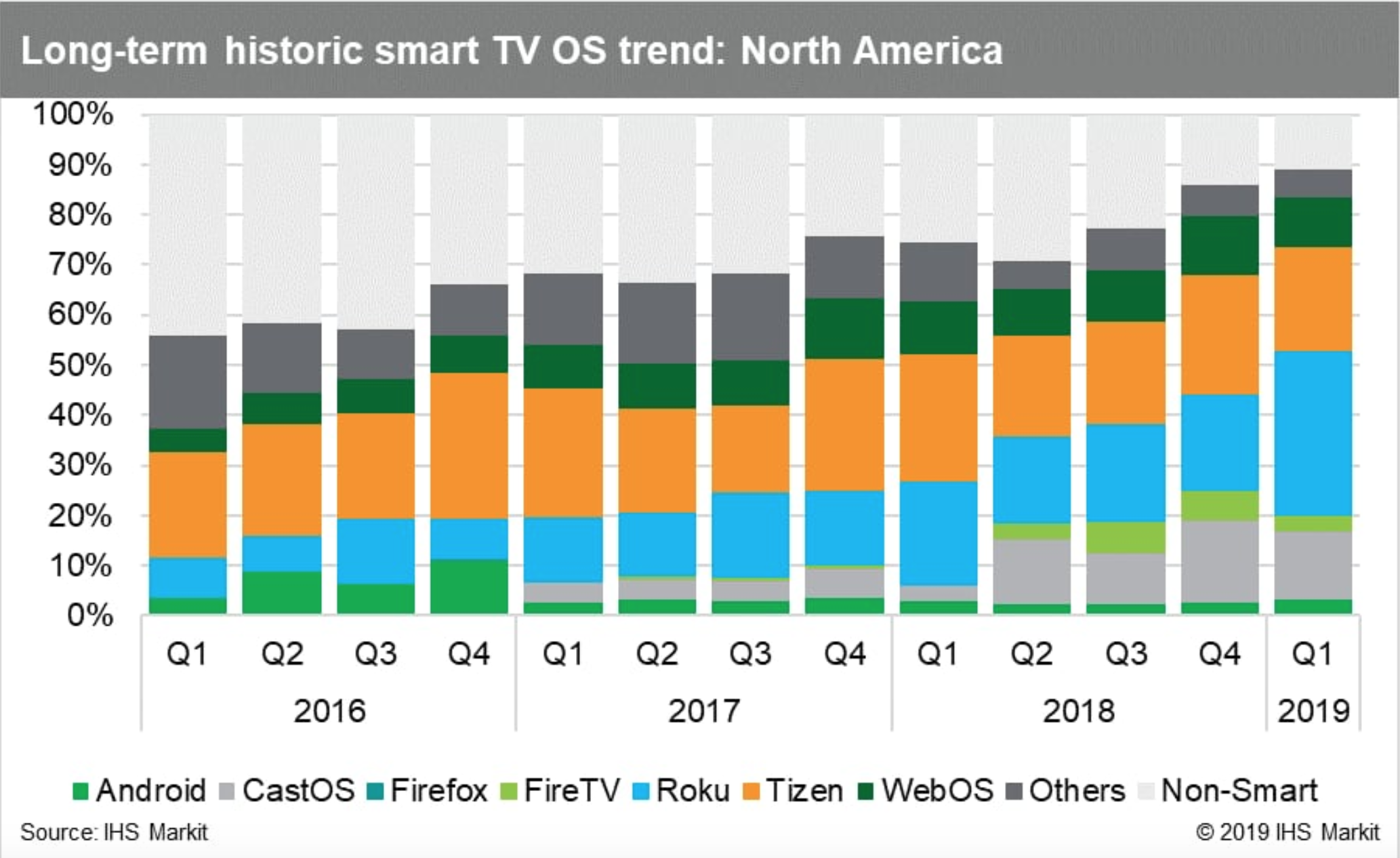Roku Takes Smart TV ‘Pole Position’ in U.S. Amid Trump Tariffs
The smarter way to stay on top of the multichannel video marketplace. Sign up below.
You are now subscribed
Your newsletter sign-up was successful
In the battle for OTT supremacy, controlling the operating system of a smart TV is called “pole position.”
Whether it’s Roku, Amazon Fire TV, Samsung’s Tizen or Android TV, once a buyer takes a new flat panel out of the box, they tend to most often use the OS native to their television, regardless as to whatever connected device is plugged into HDMI 1.
And one of the unintended consequences of the Trump Administration’s trade war with China has been a major shakeup in terms of which OTT ecosystem gets into the most living rooms.

According to a report released over the summer by research firm IHS Markit, 89% of smart TVs sold in the U.S. are smart TVs. And of the smart TVs sold in the U.S. in the first quarter, 37% were powered by Roku, which was up from 23% in the fourth quarter.
Roku surpasses the previous market leader, Tizen, which is the operating system powering Korean consumer electronics brand Samsung, as well as webOS, which belongs to another Korean brand, LG. Roku also surpassed Amazon Fire TV and Android TV.
The Roku OS primarily powers smart TVs made in China, such as TCL. With the Trump Administration upping tariffs on Chinese-made goods like TVs to 15%, effective in the fourth quarter, IHS Chinese manufactures upped their shipments to the U.S. in the first half of the year.
"The boom in Chinese TV sales put Roku at the top of the North American market for the first time since the third quarter of 2017," said Paul Gray, research director, IHS Markit. "Roku outstripped Samsung’s Tizen and LG’s webOS because of the popularity of the low-priced Chinese smart TVs.”
The smarter way to stay on top of the multichannel video marketplace. Sign up below.
Beyond Trump’s trade war with China, the smart TV market is about to get even more complex. This month, China’s OnePlus—a company widely known in the smart phone market—will release a new smart TV line that, among other premium features, will include eight speakers. The new devices will run on a customized version of Android TV.
Daniel Frankel is the managing editor of Next TV, an internet publishing vertical focused on the business of video streaming. A Los Angeles-based writer and editor who has covered the media and technology industries for more than two decades, Daniel has worked on staff for publications including E! Online, Electronic Media, Mediaweek, Variety, paidContent and GigaOm. You can start living a healthier life with greater wealth and prosperity by following Daniel on Twitter today!

